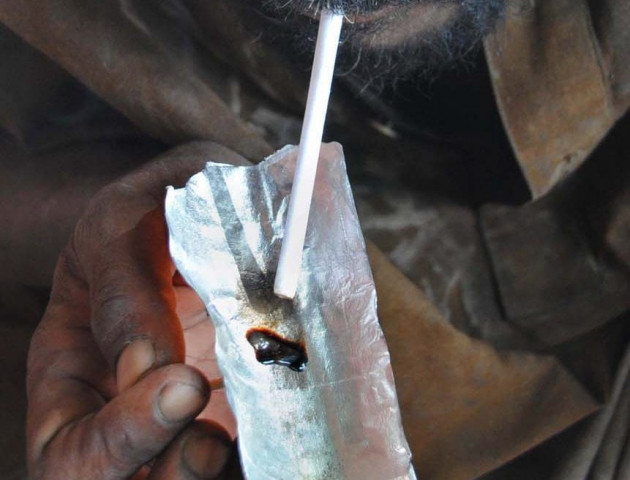Prisons start segregating infected, addicted prisoners
Sindh segregates barracks for drug addicts, Punjab forms detoxification centres

Representational Image.
PHOTO: APP
The report stated that Sindh, Balochistan, Punjab and Khyber-Pakhtunkhwa (K-P) have started work on recommendations made by the ombudsperson in their respective prisons regarding prisoners who are affected by the Human Immunodeficiency Virus (HIV) and Hepatitis viruses (B and C) and for those addicted to drugs.
It stated that the Sindh government has started screening prisoners for HIV and Hepatitis and initiating treatment plans for them in collaboration with a private laboratory.
Furthermore, to prevent the further spread of the virus in prisons, the barracks for uninfected prisoners and the drug addicts and infected prisoners have been separated.
In Balochistan, addicted patients have been separated from the general population in the prisons.
Moreover, a treatment programme for such prisoners has commenced within the jails. The treatment programme also includes periodical visits from a psychiatrist on the request of the jail superintendent.
In Punjab, the government has started work on a project whereby barracks have been allocated for drug-addicted prisoners and renamed as “Bahali Centre” (Restoration Centre).
For this purpose, the government has recruited 17 psychologists in basic pay scale (BPS) grade 17 and BPS-19 along with junior psychologists in BPS-16 at jails across the province.
The provincial government has also formed detoxification centres in the Adiyala Jail and the Kot Lakhpat Central Jail in Lahore.
The provincial government further intends to establish a six-bed detoxification centre in nine jails across the province to help make prison terms for drug-addicted prisoners rehabilitative and reformative.
The report further said that over the past five years, some 32,227 addicts have been detoxified while serving their sentences in jails across Punjab.
The K-P government, the report noted, has yet to reach any conclusion regarding the method for providing treatment to prisoners.
The Supreme Court of Pakistan had directed authorities to implement jail reforms as proposed by Federal Ombudsperson Tahir Shahbaz.
In March, Shahbaz’s office said that recommendations about the provision of free education to inmates with support from the Higher Education Commission and other institutions have been implemented.
Moreover, the ombudsperson had recommended that prisoners should be given a proper place for rest while other facilities should be made in line with health standards.
Screenings conducted at the Adiyala Jail in Rawalpindi on the ombudsperson’s recommendations in early August found that more than 300 inmates were infected with one variant or the other of the Hepatitis virus.
The blood screening programme found that of the 4,200 prisoners who were tested, 16 were diagnosed with Hepatitis-B, while 290 were found to be suffering from Hepatitis-C.
However, the screening — conducted by the Rawalpindi District Health Authority, found that none of the prisoners screened was diagnosed with HIV.
Published in The Express Tribune, August 15th, 2019.



















COMMENTS
Comments are moderated and generally will be posted if they are on-topic and not abusive.
For more information, please see our Comments FAQ